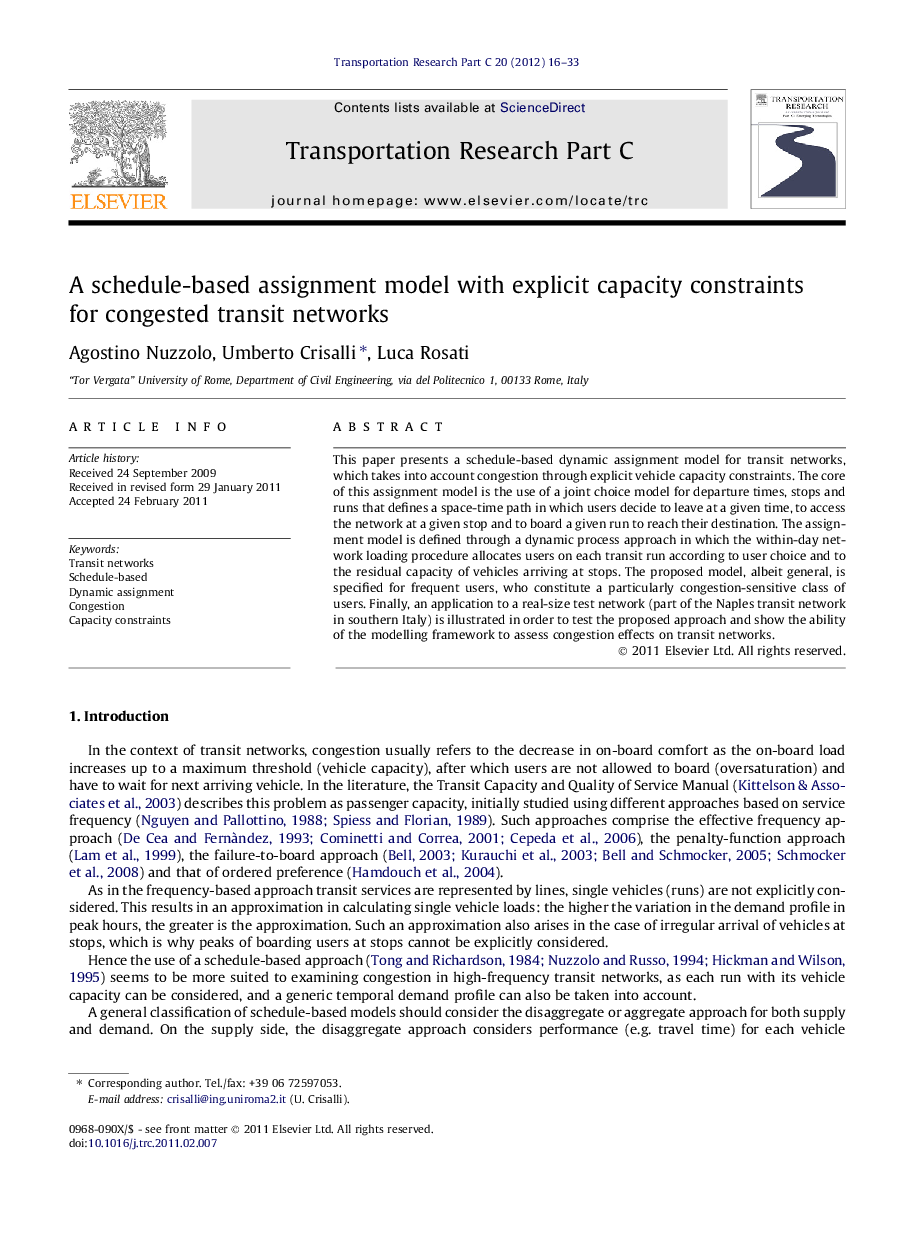| Article ID | Journal | Published Year | Pages | File Type |
|---|---|---|---|---|
| 525452 | Transportation Research Part C: Emerging Technologies | 2012 | 18 Pages |
This paper presents a schedule-based dynamic assignment model for transit networks, which takes into account congestion through explicit vehicle capacity constraints. The core of this assignment model is the use of a joint choice model for departure times, stops and runs that defines a space-time path in which users decide to leave at a given time, to access the network at a given stop and to board a given run to reach their destination. The assignment model is defined through a dynamic process approach in which the within-day network loading procedure allocates users on each transit run according to user choice and to the residual capacity of vehicles arriving at stops. The proposed model, albeit general, is specified for frequent users, who constitute a particularly congestion-sensitive class of users. Finally, an application to a real-size test network (part of the Naples transit network in southern Italy) is illustrated in order to test the proposed approach and show the ability of the modelling framework to assess congestion effects on transit networks.
► This paper presents a schedule-based dynamic assignment model for transit networks. ► It uses a joint choice model for departure times, stops and runs. ► Transit users are assigned to vehicles according to the residual capacity. ► An application shows the ability of this assignment model to assess congestion.
